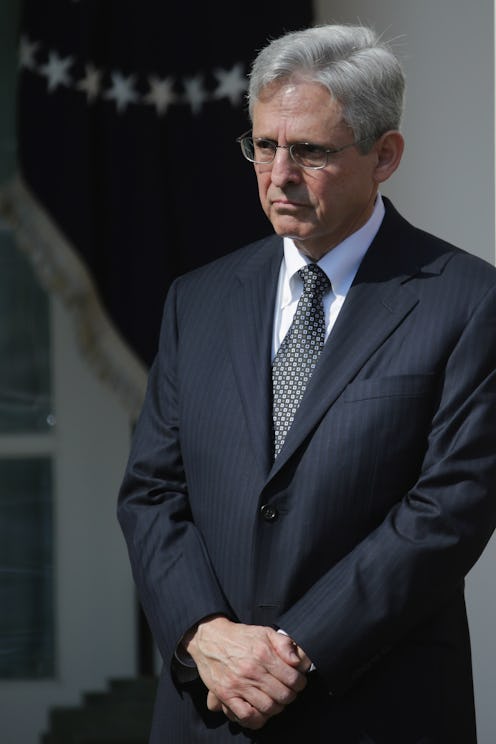News
What Does Merrick Garland Believe About The Law?
The long national waiting game finally came to an end Wednesday: former prosecutor and federal judge Merrick Garland was nominated to the Supreme Court by President Obama. Garland, 63, was something of a surprise pick, far less ballyhooed in the media than names like Sri Srinivasan and Jane Kelly, so it'll be fascinating to see how the GOP reacts. And how they react could depend on Garland's judicial philosophy. Namely, is Merrick Garland an "activist" judge?
You may loathe the label, and indeed, it's one of the most obviously circumstantial ones that comes up in assessing Supreme Court picks, as well as sitting justices. When the ruling goes the way you want it to, it's just sound jurisprudence. When it goes the other way, well, the judge is an unscrupulous, activist judge. Both sides make this charge at one time or another, although it's more commonly associated with the right, in no small part because the right-wing justices on the court (the late Antonin Scalia in particular) have cultivated public reputations to the contrary.
Scalia's brand of "constitutional originalism," specifically, was no less prone to the inconsistencies and ideologically suggestive decisions than you'd expect from any overtly politically zealous human being. But his public brand was all about rigid adherence to the Constitution and the original intent of its framers, and the branding stuck. If there's one thing Republicans will want (or insist on) in a nominee, it's that they intend to "follow the law, not make it."
That last quote is from Garland himself, during his introduction to the nation at the White House on Wednesday morning. The real question, though, is whether he actually believe that, or is it a feint designed to placate the GOP opposition that Obama and, hell, the whole world knows is coming? Obviously, it's a slightly inane turn of phrase, even though it does helpfully speak to a nominee's judicial philosophy ― whether or not you think it's your job to "make the law," sometimes you're going to have to make a hard call on a major rights issue, and those decisions are going to have consequences.
It could be important ground to stake out if Garland ever actually sees a confirmation hearing, however. That's not even assured in and of itself ― it's up the the Senate Judiciary Committee, specifically Iowa senator and chairman Charles Grassley, to make that call. But the political pressure to give Garland his due will surely be overwhelming, considering they'd have to freeze the entire process for a full 10 months in order to ensure the next president gets to make the nomination.
And if Garland does get his hearing, and it's in any way in good faith (in other words, if the GOP actually hears him out rather than votes him down reflexively), then all this political framing and jockeying for position could actually matter. All that remains to be seen is whether he even gets that far ― Grassley continues to insist he will refuse even to hold hearings.
